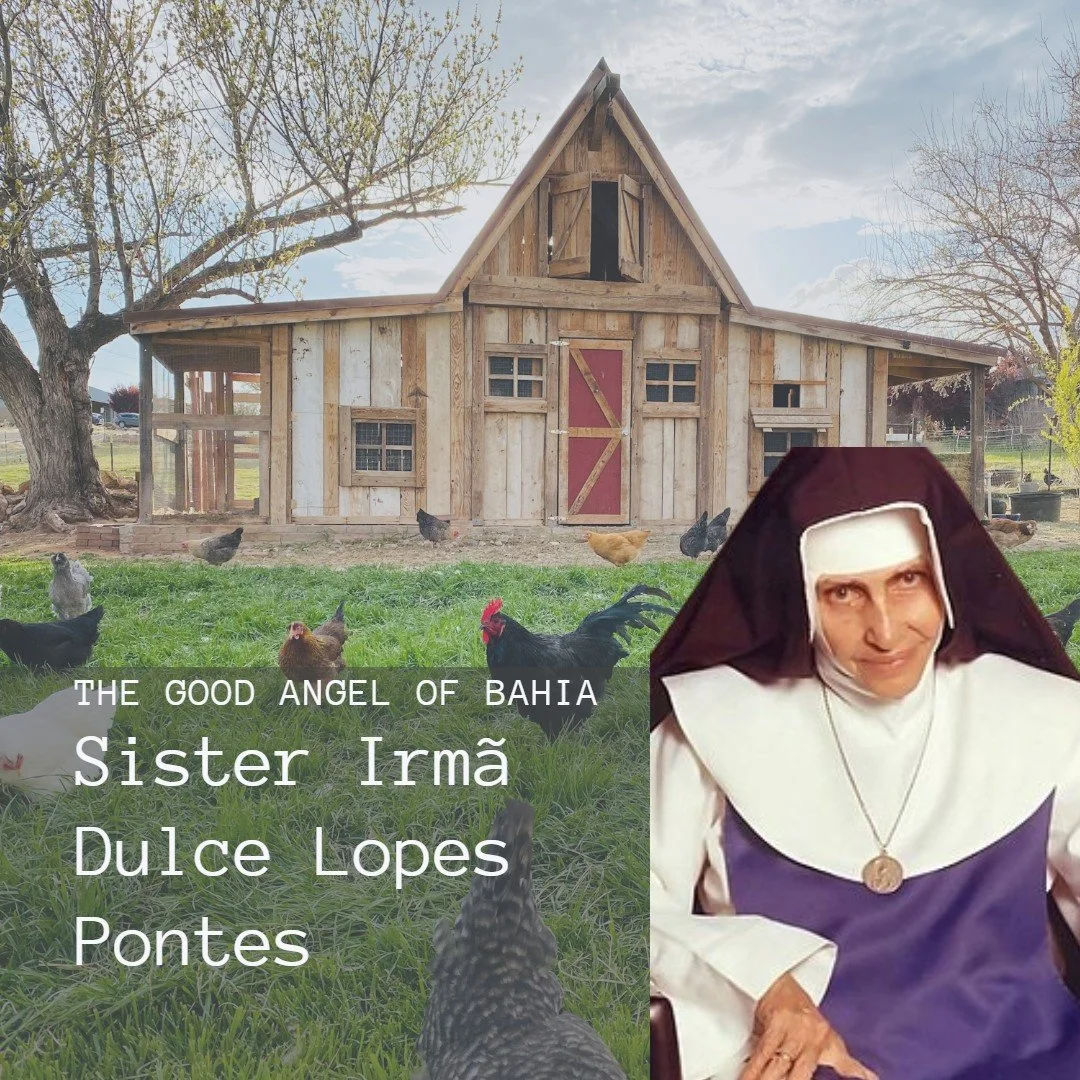The Good Angel of Bahia: Sister Irmã Dulce Lopes Pontes
If you're not familiar with the life of Sister Irmã Dulce Lopes Pontes, prepare to be inspired. Known as the "Brazilian Mother Teresa" and the "Good Angel of Bahia," she was a Brazilian nun who founded one of the largest and most respected charitable organizations in Brazil. We recently celebrated her feast day on August 13, and she is one of the amazing women featured in my book, Important Catholic Women of the 20th Century. Her life is a powerful testament to the impact of small acts of great love and a bias towards action.
Born Maria Rita de Souza Brito Lopes Pontes in Salvador de Bahia, Brazil, in 1914, she came from a family dedicated to helping others. Her mother died when she was only six years old, and her father was a dentist and professor who also provided charity to the poor. Maria was a free-spirited child who loved to play soccer and fly kites, but her life took a profound turn at age 13 when an aunt took her to visit a slum neighborhood, or a favela. The intense poverty she witnessed deeply moved her, and she began inviting the poor and sick into her home, where she would cut their hair and tend to their wounds. She was strongly influenced by the example of Saint Thérèse of Lisieux, who taught the importance of doing small acts with great love.
Maria felt a calling to religious life, and with her father's blessing, she joined the Missionary Sisters of the Immaculate Conception of the Mother of God. She took the name Dulce to honor her late mother and became known as Sister Irmã Dulce Lopes Pontes, or more commonly, Sr. Dulce. After joining the order, she returned to her hometown and began teaching, but her passion for serving the poor never waned. She helped found the first Christian workers' movement in Bahia and opened a school for the children of union workers.
As her reputation grew, so did the number of people seeking her help. Sr. Dulce started housing the homeless and sick in abandoned buildings in a place called "Rat Island" and brought them food and medical care. However, they were repeatedly evicted. In 1949, she got permission from her Mother Superior to house her patients in the convent's henhouse. The only condition was that she also had to care for the chickens, so she fed them to her patients, ensuring they had both a place to stay and a full belly. This act perfectly illustrates her "bias towards action." She didn't wait for the perfect solution; she saw a need and immediately found a way to meet it, even if it seemed unconventional.
In 1959, her ministry officially became the Charitable Works Foundation of Sister Dulce (Obras Sociais Irmã Dulce), or OSID. Today, OSID is one of Brazil's largest charitable healthcare organizations, serving over 3.5 million people annually. Sr. Dulce personally greeted people in the soup line, listening to their needs and addressing them, no matter how small. OSID provided services from meals and medical care to haircuts and transportation. Sr. Dulce was even known to carry people to the hospital herself if there was no other way for them to get there. This is even more remarkable considering she suffered from lung problems for the last 30 years of her life, with her lung capacity compromised by 70%. She never let her own physical infirmities stop her from helping others.
Sr. Dulce was nominated twice for the Nobel Peace Prize for her work with the poor. In 1990, Pope John Paul II visited her in the hospital. The convent's henhouse where her work first took root is now the Santo Antonio Hospital, specializing in cancer treatment and continuing to serve those in poverty.
Sr. Dulce died in 1992 and was canonized in 2019, making her the third-fastest cause for canonization in history. During the beatification process, her body was found to be incorrupt.
Sr. Dulce's life offers a beautiful lesson in prioritizing the individual over the institution. She didn't wait to establish a formal foundation before helping people; she started by caring for one person at a time, and the organization grew organically from those small acts. She looked at the person in front of her with the eyes of Christ and saw their unique needs. Her example reminds us that we don't have to solve all the world's problems at once. Instead, we can focus on doing something, no matter how small, for the people right in front of us. As she herself said, "If there were more love, the world would be different; if we loved more, there would be less war." She also believed that by doing your best for your brother or sister, there will be peace on earth.
Her story encourages us to be present with those around us. We can bring a meal to a neighbor, watch a friend's children, or simply sit and listen to an elderly person. By serving others, we bring them Christ and serve Christ present in them.
Saint Irmã Dulce Lopes Pontes, pray for us!
